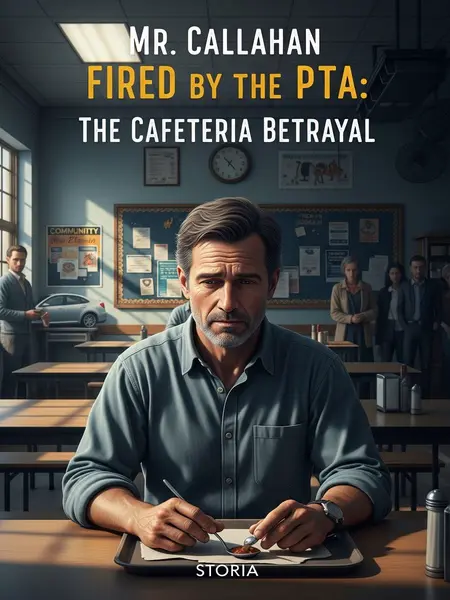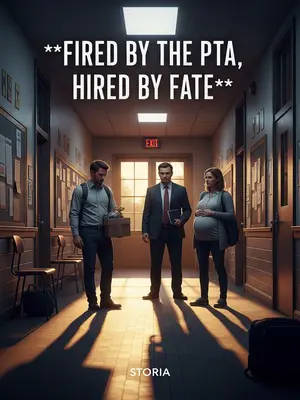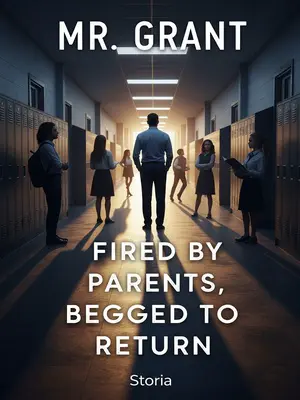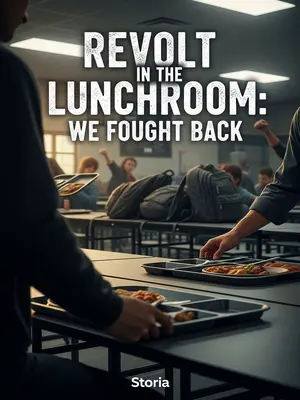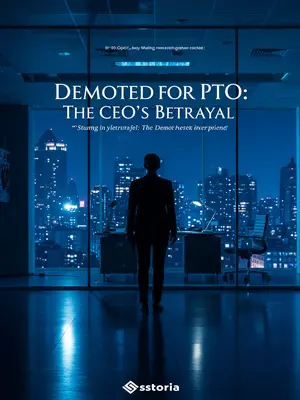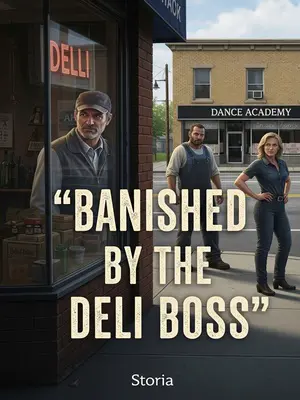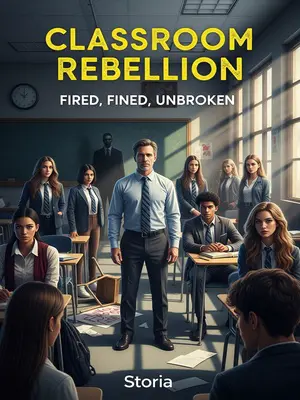Chapter 3: The Numbers Game
To avoid interfering with student lunch, we’d arrived half an hour late. It was just us in the cafeteria—the parents, the principal, and me. The usually noisy lunchroom was hushed, sunlight slanting across polished tables.
Doug Harper’s outburst killed the mood. Laughter faded, conversations stopped, and every parent put down their fork to stare at him. He listed the menu, stabbing at each item as if the food itself had offended him. "Chicken tenders, baked tilapia, pulled pork, sautéed lettuce, broccoli, plus a bowl of veggie soup."
"Mr. Callahan, you must be making a killing in this cafeteria." He lounged back, tapping his fork against his tray, eyebrows raised like he was waiting for someone to challenge him. That kind of talk cuts deep, especially from folks you see at Friday night football games or standing behind you in the checkout line at Kroger.
He was gunning for me. I sized him up—never seen him before. Maybe a new transplant. Maybe just someone itching for a fight.
"Sir, if you have concerns or suggestions, we can talk after the meal. Let’s let everyone eat first," Principal Williams tried, leaning forward, voice soft but firm.
"Principal Williams, you’ve misunderstood. I have no complaints about the school. I just can’t stand certain people, that’s all. Everyone, please, keep eating." Doug was polite to Williams but made sure his words were aimed at me. The passive aggression hung in the air—a Midwest specialty.
After that, the parents lost their appetite, and the lunch ended quickly. Trays were cleared in silence, polite smiles replaced by tight-lipped glances. I trailed after the group to the meeting room, stuffing my hands in my pockets, bracing for the storm. The hallway echoed with footsteps, the tension thick as buttercream icing.
The meeting room was all wood paneling and fluorescent lights—a holdover from some 1980s renovation. The parents arranged their water bottles and legal pads like they were settling in for a trial.
Principal Williams gave a quick welcome and handed the floor to the parents, his smile a little too nervous. Most parents exchanged glances, weighing whether to speak up. Small-town etiquette: don’t air your dirty laundry in public. Most kept quiet.
Then Doug Harper stood up, straightened his tie, and cleared his throat. "Personally, I have no issues with the school. Whether it’s the teaching environment or the faculty, I’m very satisfied. There’s just one thing: I think the cafeteria charges are a bit too high. Eight hundred dollars per month per person for meals—even colleges charge less. After eating here today, I feel there’s a lot of ‘padding’ in this. Just a few ordinary home-style dishes, yet you charge eight hundred dollars. Mr. Callahan, is this a cafeteria or a five-star hotel?"
He picked up his cup, sipped his coffee, and waited for the reaction. It was a routine—flatter the school, then attack me. I kept my tone even, but there was steel in my voice. "Sir, may I ask your name?"
Doug’s eyebrow shot up. "Mr. Callahan, so eager to know who I am—are you planning to retaliate?" The words rang out, drawing a few nervous laughs. Classic tactic—make yourself the victim before anyone else can call you out.
I wanted to laugh, but shook my head. Always the loudest guy in the room thinks everyone’s out to get him. "We have no personal grudges, so why talk about retaliation? But since we’re communicating, I should know how to address you, right?"
"No problem, I’m not afraid of retaliation. My name is Doug Harper." He lifted his chin, drawing it out like he expected everyone to recognize it.
"Mr. Harper, from your point of view, you think the cafeteria charges are too high?" I kept my eyes steady, refusing to back down.
"Isn’t it high? As far as I know, college students spend less than a thousand a month on food. And college students eat way more than elementary kids. Mr. Callahan is a businessman. I don’t object to making money, but there should be a limit, right? I did the math: Maple Heights has 3,200 students. At eight hundred dollars per person per month, that’s nearly $2.6 million. For just a school cafeteria—how could food cost so much? Lobster and steak? I didn’t see any."
Doug Harper looked at me smugly, as if he’d caught me red-handed. He sat back, arms folded, a self-satisfied grin spreading across his face. The kind of math that impresses people until you look closer.
I could only feel speechless. He was acting like he’d uncovered the Watergate of school cafeterias. Most people just hear the big numbers and panic.
The school charges eight hundred a month for meals—a price I set. Over two million a month does sound scary. But that’s not how the math works. The board takes a 20% fee, utilities and maintenance eat up 5%, staff salaries take 10%. Over 300 staff eat for free—another 5% gone. In reality, only 60% of the money goes to food for all 3,500 people. Averaged out, that’s less than fifteen dollars per person per day. Less than five dollars a meal. For three meats, two veggies, and soup. What more do you want?
But from Doug’s view, even five bucks is too much. He compared it to college students—never mind that most eat takeout, and the standard’s nowhere near this. It was nonsense, but it stung.
"Mr. Harper, in your opinion, what would be a reasonable meal fee?" I finally asked.
"That depends on your conscience." Doug Harper shrugged, that smug look back in place. Like he’d tossed a grenade and was waiting for the blast.
Conscience? Looking across Silver Hollow, I doubt you’d find a more conscientious cafeteria contractor than me. I bit my tongue, refusing to rise to the bait.
"Mr. Harper, if you put it that way, I really can’t answer. The cafeteria has operating costs—"
"Did everyone hear that? The first thing out of his mouth is ‘costs.’ Who doesn’t have costs? Snake oil salesman, snake oil salesman—always a hustle, right? Even making money off children—don’t you feel any shame? If I were running this cafeteria, costs would be reduced by at least 50%!"
He leaned in, voice rising, riding the wave of outrage in the room. He knew exactly which buttons to push—sympathy, outrage, and the hint that he could do it all for less. Many parents nodded, eager for a discount.
That last line gave him away. "Mr. Harper, do you mean you have a way to reduce the cafeteria’s costs?" Principal Williams asked, suddenly interested.
Doug sat up straighter, eyes shining. He wasn’t just complaining—he wanted my job.
